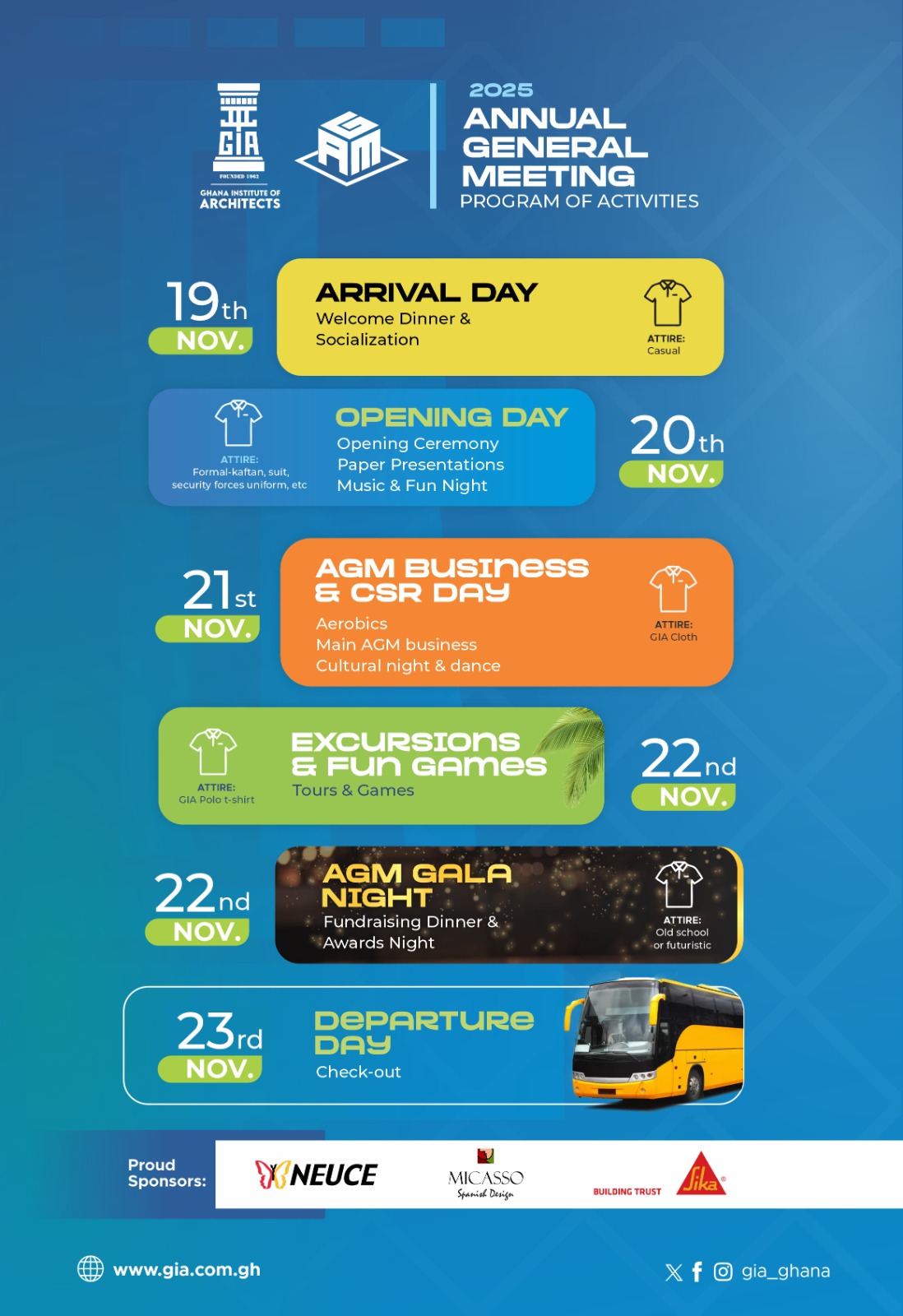In a developing country such as ours, it is inevitable that there will be works on-going on the road networks as we proceed to make them fit for use.
Looking at the sheer numbers of vehicles being imported into the country, it’s easy to see one factor to our traffic woes. The key driver to this, in my opinion is that, the failings of the public transport system have made Ghanaian citizens more determined than ever to own private vehicles. In some cities of the world, the implementation of reliable means of public transport makes it possible to travel conveniently around without the need to own a vehicle. In fact it is often better and cheaper to use the public transport system.
It is common knowledge that road usage in Ghana is at choking capacity. One can tell by the difficulties motorists face during the key rush-hour periods of any normal working day. Not acting upon this to expand the capacities of our road network is a major failure which needs to be addressed. To help achieve this grand aim, there is the urgent need for us to control and manage the way our civil contractors work on public roads, monitor health and safety at the work sites as well as the start/completion dates of the projects. This should be our immediate concern as we seek to tighten up on the regulation of public construction operations. The laws of the land must be amended to include guidelines on how works should be undertaken on the nation’s streets. We do need to be better organised than we currently are to put quite simply.
First of all, before any contract is awarded, contractors must be made aware of the conditions they must satisfy prior, during and after a road construction. In effect they must take these responsibilities seriously or face being fined or summoned to court in extreme cases. This must be enforced by an unbiased/incorruptible Regulatory Authority and a Health and Safety Executive with a similar tough stance. Contractors must also be able to specify the works duration and provision must be made for any slight delays. Overrunning works that are not managed contributes to the chaos we currently see on our roads. Generally, there must be an amendment to the Road works laws to ensure that contracts include clauses to cover the following main points which will help reduce traffic whilst giving contractors better guidelines as to how works should be conducted in the country.
PRIOR TO THE CONSTRUCTION:
• The contractor must be able to identify the type of traffic management needed to control or divert traffic. Provision must be made to improve the diversion route, to increase the vehicle capacity and quality of the road surface before closing down any roads to commence the main works.
• The work area must be fenced off and appropriate measures taken for the site to be secured to prevent injuries to the general public. An alternative and signed walk route must be provided.
DURING THE CONSTRUCTION:
• Care must be taken to ensure that the general public is not put in harm’s way at any time. Signs must be put up and maintained throughout the duration of the works to advise pedestrians and motorists alike. It must be noted that the local languages should be utilised in order for these signs to be effective and to relay the message in a clear and responsible manner. Contractors must show that their number one priority is the general public, for whom the final outcome of the construction would eventually benefit.
• Where a road has been closed, the diversion route should also be maintained regularly until the main works finally close. If there is any impediment to the flow of traffic which is caused by poor road surface quality, this must be addressed by the contractor immediately. So in effect, not only are they responsible for the main road works but also for the diversion routes. This will help improve the quality of some of our presently inaccessible roads.
AFTER THE CONSTRUCTION:
• The whole site must be cleared of all debris, plant and equipment. All snags must be addressed and closed out and the site cleared of all fencing and signage. This must then be inspected by the Health and Safety Executive as well as the Road Works Regulatory Body.
THE ROLE OF THE HEALTH AND SAFETY EXECUTIVE:
This body is to ensure that the works site has been cleared and made safe for the general public. Again, the laws of the land should be amended in order to back the work of such a body which would be a very difficult or near impossible task if not. The executive will use the powers bestowed upon it to record and store evidence where the contractor has fallen foul of the law and use this to impose fines on the contractor using the help of the court of law. This is a great way to control the activities of a contractor and ensure that they work towards the conditions as set out in their contract.
THE ROLE OF THE ROAD WORKS REGULATORY BODY:
This body will be responsible for taking core samples of the newly completed roads, ensuring that they are finished to a high standard of quality. In many cases in this country, contractors do not use the right thickness of layers for the roads that are constructed. More often than not, the roads that are built do not last as long as they should. The Regulatory body can also demand that the contractor gives a guarantee on the works that they have completed. Contractors should be able to give a 10 year guarantee at the least. Many roads start to deteriorate within the first year of completion, which says a lot about the contractors that built them. Contractors whose roads do not last as long as their guarantee should be placed on a black list and not given any future contracts. This weeds out all the enemies of progress costing the country money without producing a good quality of work. Again, if there’s a breach of contract here and the contractor is found to produce work that is below standard, the law courts can be used to impose the fines as agreed in the works contract. Ghana has way too many pot-holes on the roads. Roads need to constructed correctly and there should be processes in place to check on the quality of work done. Pot-holes cost the motorist a lot of money in maintenance costs. It is unfair to keep the roads in such poor conditions and it does no good for the growth of the country.
To assist the bodies in executing their duties exceptionally well, the government should be investing in the development of GIS mapping. This will then be layered with the National Street Gazeteer data. Each works location can then be easy to manage as they can be seen easily on a map at the click of a button. As well as being a handy tool for Central Government, Local Government, Security and Emergency Services, this goes hand in hand with the utilities data mentioned in my previous article.
In most Western countries, attempts to control and manage works began as far back as 1951 and has evolved since then, whereas in this part of the world, it has been down-played and caused to become stagnant. It is a problem that has been ignored but must be addressed with great urgency. It is imperative that we now stamp out these issues we are having with traffic, works management, health and safety and general asset management in one swoop. With the right attitude this can be easily achieved. Let’s stop saying things like, “Oh this is Ghana, that’s how it goes”. No! Things must be changed for the greater good and it starts with our attitudes so let’s all be a catalyst to encourage the very basic changes we need in order to leave a better legacy for the next generation.
Whatever good ideas we can implement now to benefit the country benefits us all, not just the privileged few.
God bless Ghana.















